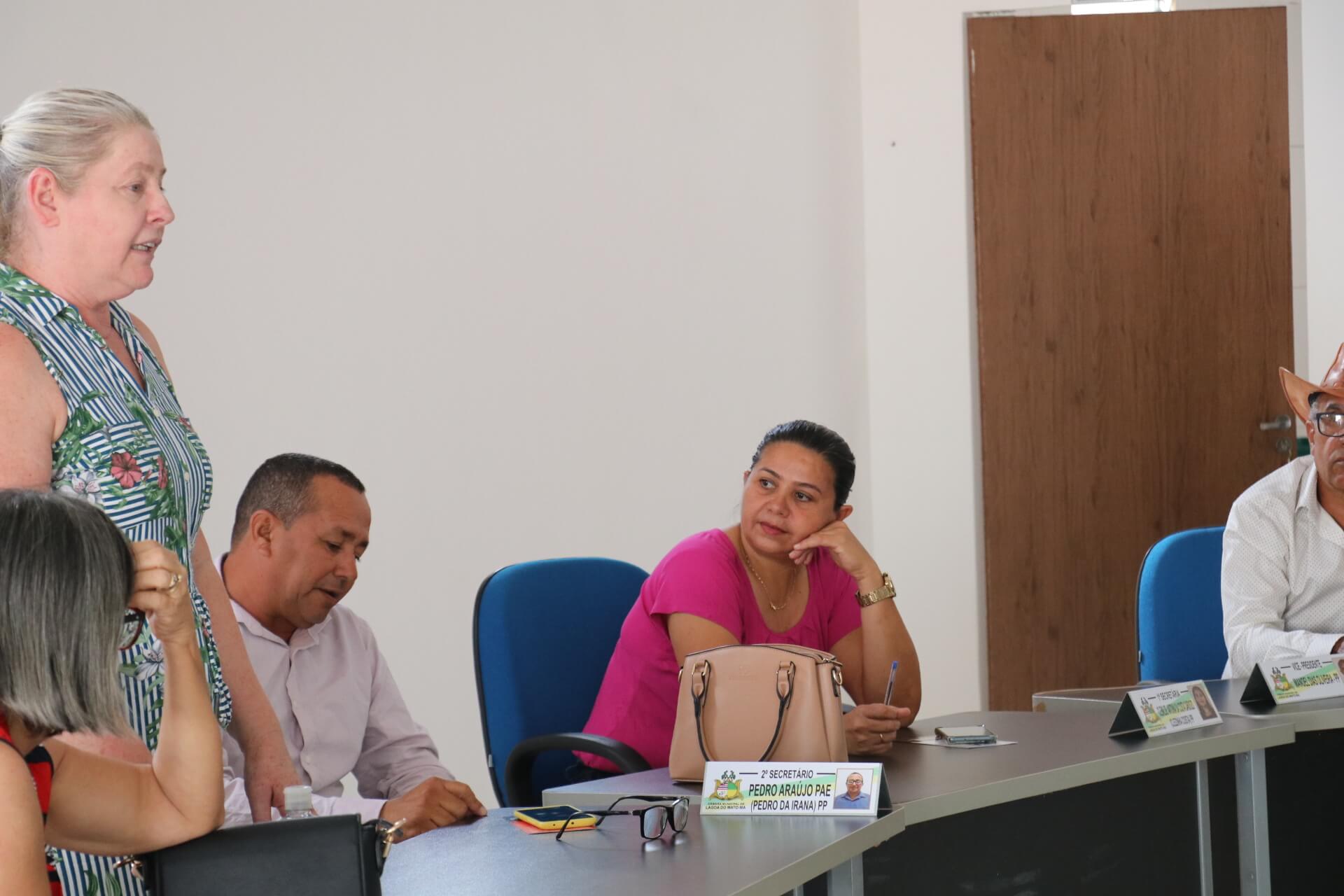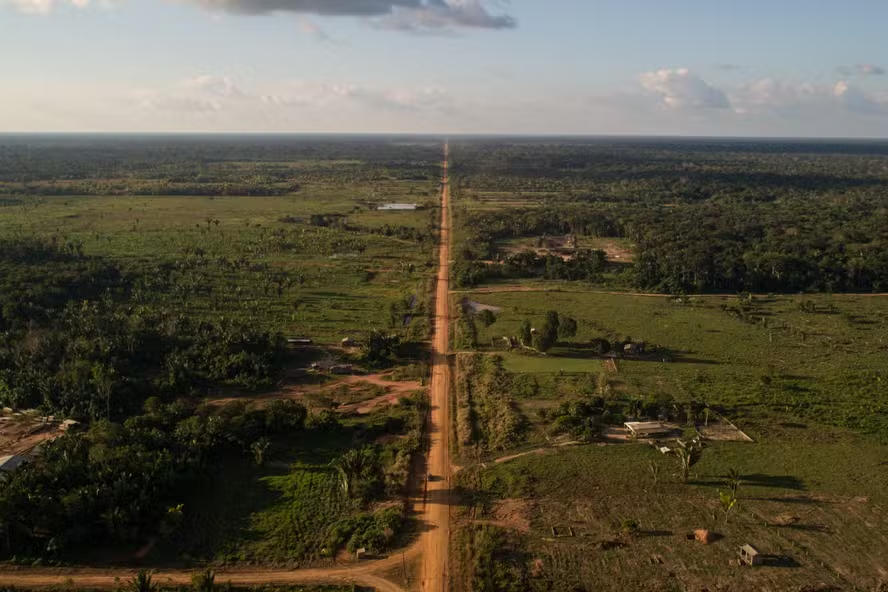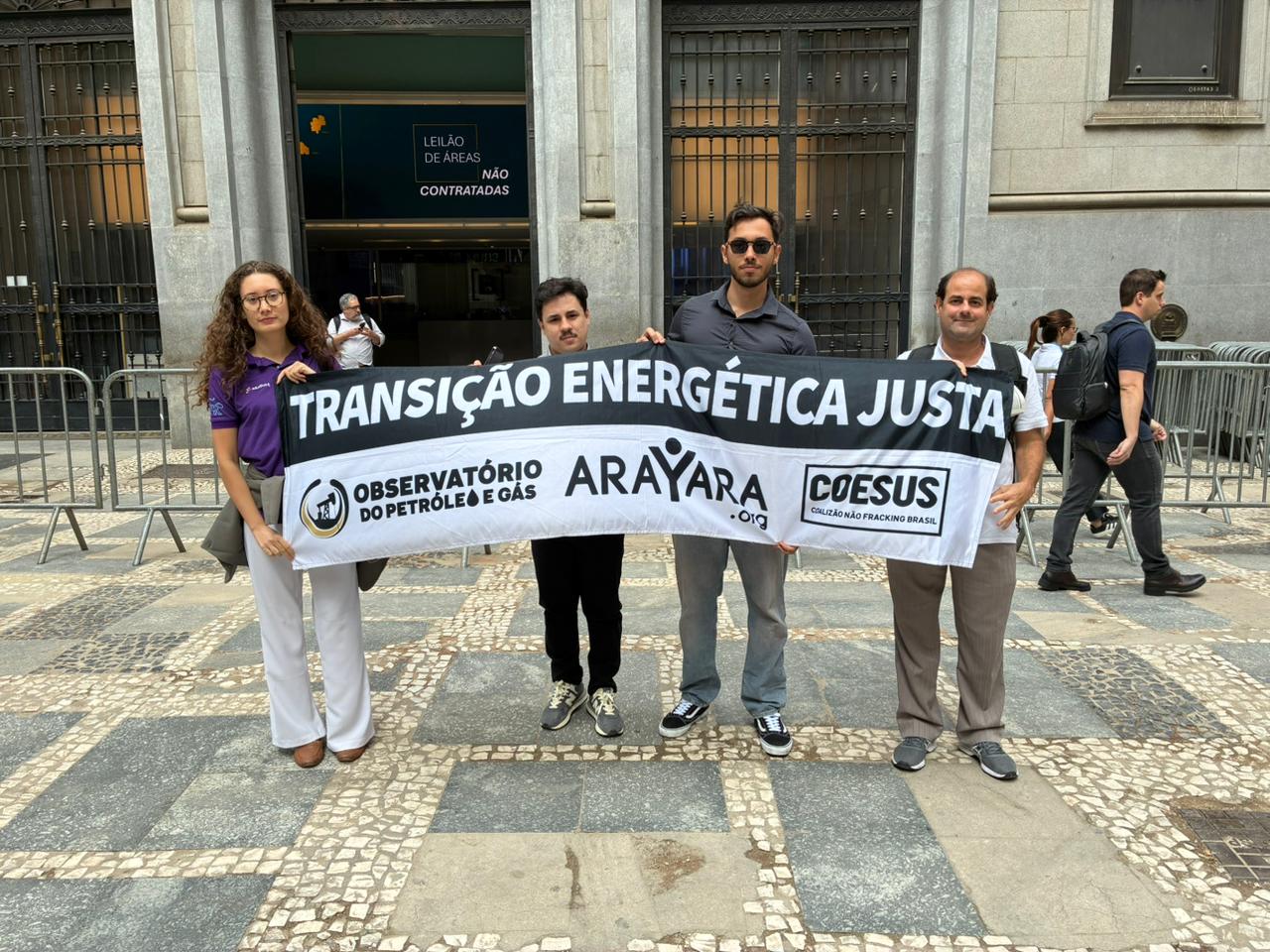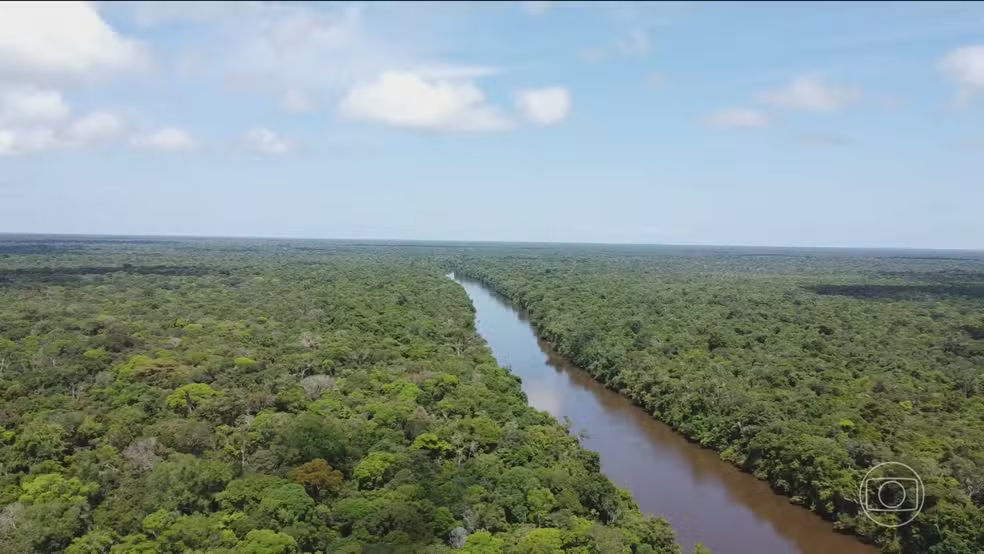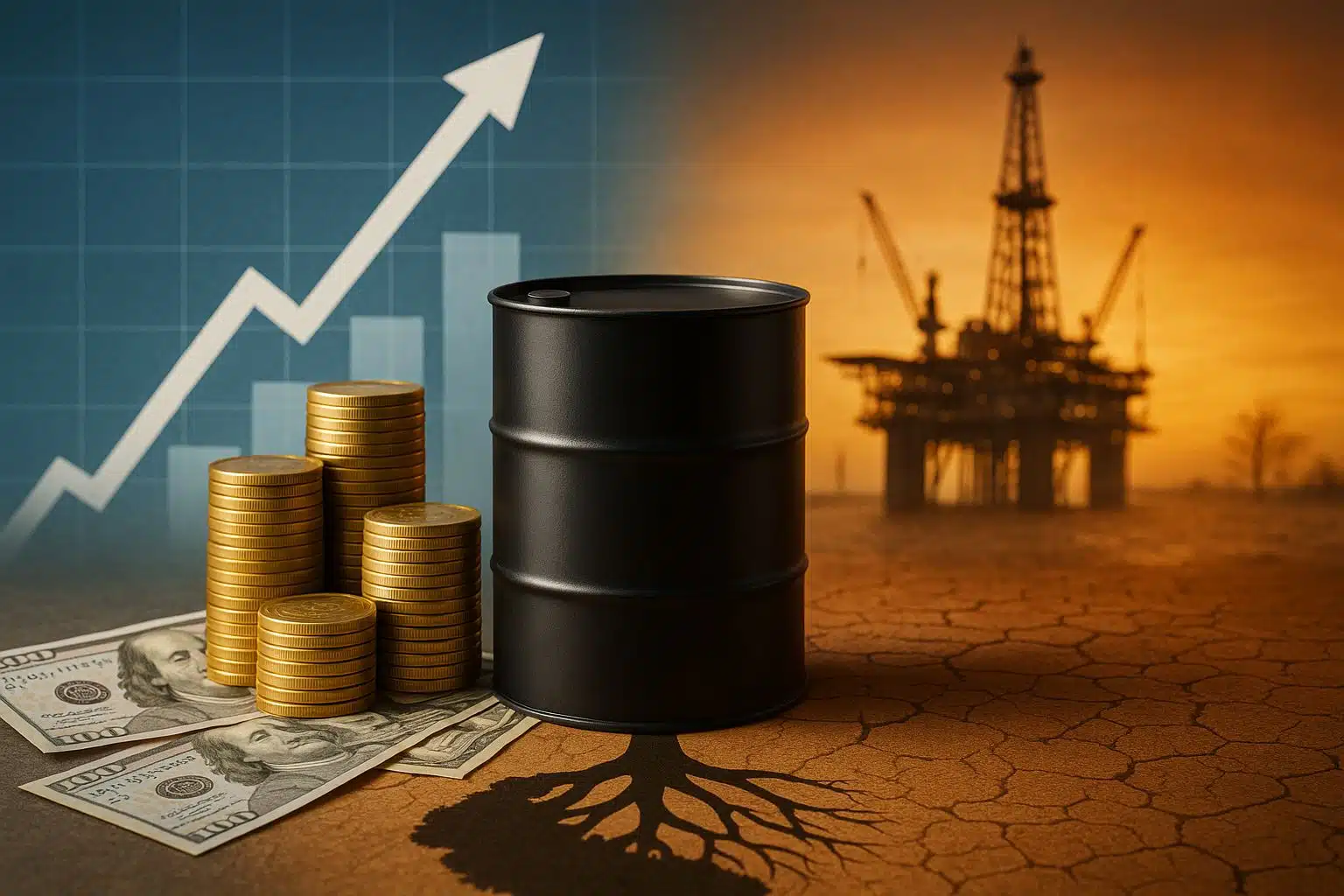The city of Maranhão recognized the dangers of the technique, but the mayor preferred not to take a position
What is fracking?
Fracking – also called hydraulic fracturing – is a process that involves injecting large volumes of water, chemicals and sand at high pressure into layers of rock underground to release trapped natural gas. Although it is a technique already in use in several countries, it is controversial for causing environmental and ecological damage, including groundwater contamination, release of greenhouse gases, induced earthquakes, etc.
Lagoa do Mato, Maranhão, was the stage of a training session promoted by COESUS – Coalition No Fracking Brazil for Water and Life, a campaign of the Arayara International Institute, with the theme “Fracking: a threat to the future of Brazil” on September 9, 2022. The event gathered all councilors of the municipality, who were in public session at the city council. In addition to the central theme, the use of renewable energy and a just energy transition were also addressed. At the end of the plenary session, a bill against fracking was presented to the city’s legislature, which pledged to deal with it in future meetings
During the training, the councilors expressed their opposition to fracking and reported to the COESUS team about research being conducted in the municipality by an oil company. Some of them mentioned that research drilling has resulted in explosions in the areas where it was carried out.
The councilors also shared that they are already adopting measures to implement renewable energy in their homes and properties, aiming for energy efficiency. It was pointed out to the plenary that fracking, besides being a devastating technique, increases the dependency on thermoelectric plants, which generate more expensive and polluting energy, resulting in higher tariffs for consumers.
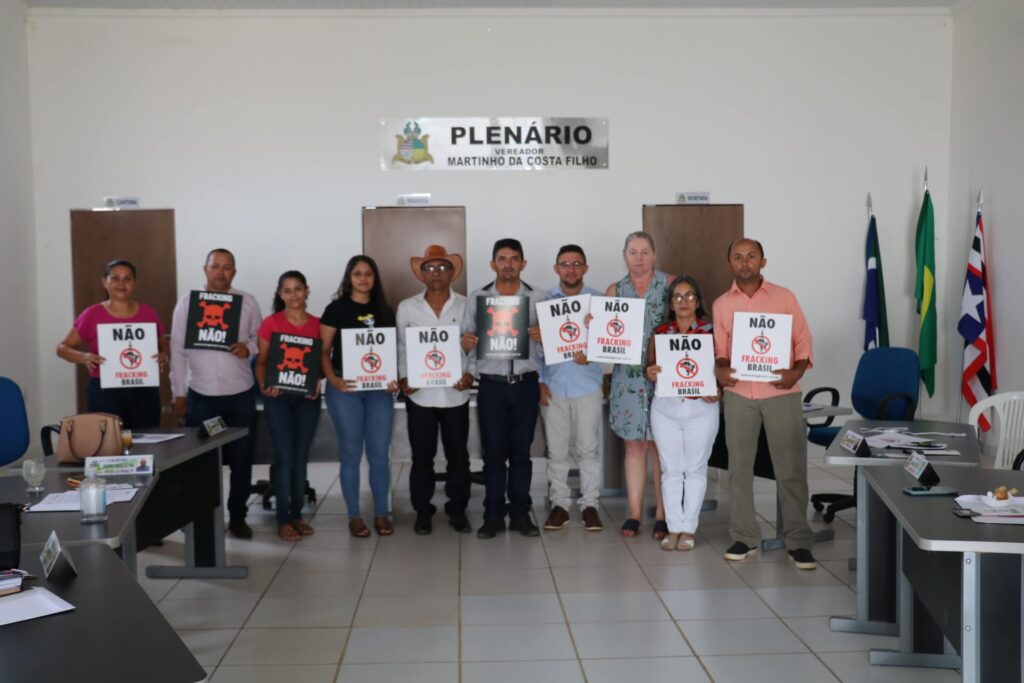
City councilors of Lagoa do Mato take a stand against fracking.
Lagoa do Mato is known for its large lagoon, which lends its name to the town. According to the mayor, Alexsandre Guimarães Duarte (PP), despite the presence of this important source of water, the region suffers from the scarcity of the resource. In order to carry out fracking, a very high quantity of potable water is needed. With this in mind, COESUS asked the following question: Does it make sense to take water from an entire population to extract gas that will benefit other places, leaving damage to the town of Lagoa do Mato?
The mayor of the city, although he was shocked by the facts presented, chose not to position himself publicly on the subject. However, he emphasizes the population’s lack of knowledge about fracking and its negative impacts.
The fight against fracking is fundamental to preserve the environment, the health of the population, and to guarantee a safe and prosperous future for the communities. A broad debate and the active participation of all sectors of society are necessary to make conscious and responsible decisions regarding the use of natural resources. COESUS will continue its mission to inform and mobilize, aiming for a Brazil free of fracking and with a more sustainable future.
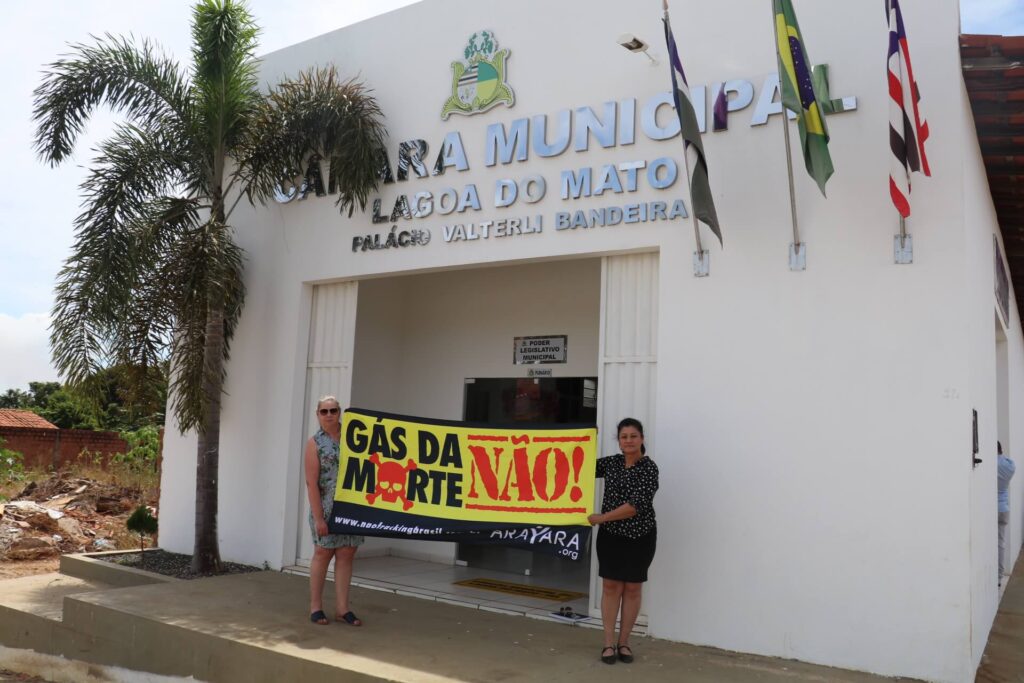
Team from No Fracking Brazil in front of the Town Hall of Lagoa do Mato.

